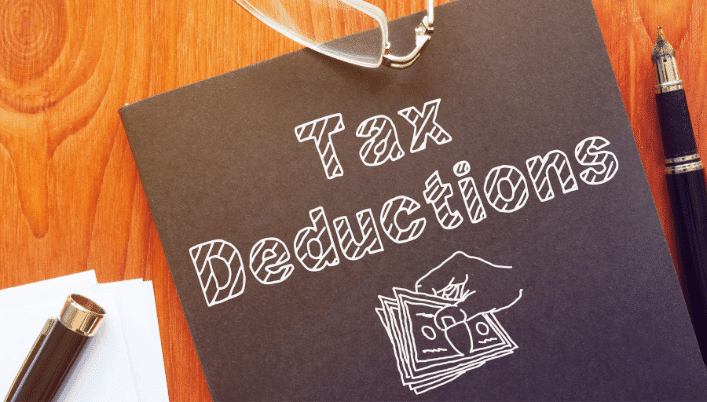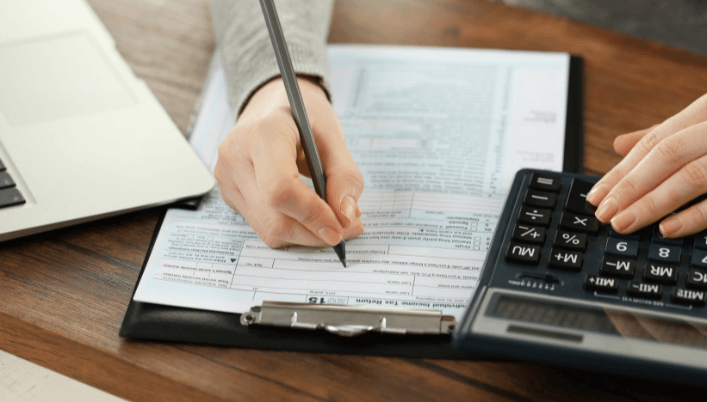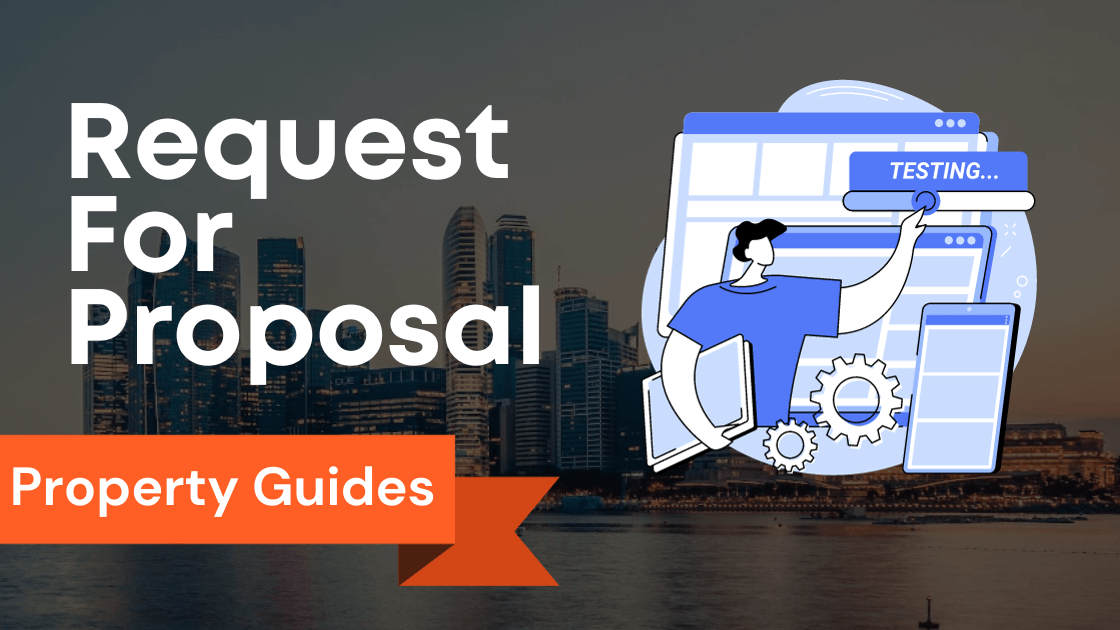Rental Income Tax in Singapore: A Comprehensive Guide

What is rental income tax?
Rental income tax refers to the tax imposed on the income received by property owners or landlords from renting out their properties.
In Singapore, rental income is considered taxable income and is subject to taxation under the Income Tax Act.
Who is liable for rental income tax?
In Singapore, property owners or landlords who earn rental income from their properties are liable for rental income tax.
It is important to note that rental income tax is different from property tax, which is levied on the ownership of properties and is not considered as taxable income.
Tax residents in Singapore are required to declare their rental income to the Inland Revenue Authority of Singapore (IRAS) and include it in their annual income tax return.
Non-residents who receive rental income from Singapore properties are also subject to rental income tax.
How is rental income tax calculated?
The rental income tax is calculated based on the taxable income derived from the rental of properties in Singapore.
The tax rates depend on the individual’s tax residency status and the amount of taxable income.
For tax residents in Singapore, the rental income is added to their other sources of income, such as employment income or business income.
The total taxable income is then subject to the progressive income tax rates specified by the IRAS.
For non-residents, the rental income is subject to a flat rate of 22% or the prevailing tax rate, whichever is higher.
Non-residents are not eligible for tax reliefs or deductions available to tax residents in Singapore.
The taxable income from rental properties is determined based on the annual value of the property.
The annual value is the estimated gross annual rent that could be obtained if the property was rented out, excluding furniture, fittings, and maintenance fees.
Property owners need to keep records of their rental income and expenses incurred for the property, such as property tax, maintenance costs, and agent fees.
These records will be necessary for calculating the taxable income accurately.
https://www.youtube.com/watch?v=HTzmNVe9jqE
In conclusion, rental income tax is an important consideration for property owners in Singapore.
It is crucial to understand the tax obligations, including who is liable for rental income tax, how it is calculated, and the applicable tax rates.
Compliance with the tax regulations and proper record-keeping will ensure a smooth process and avoid any potential penalties or fines.
Key Takeaways
- Rental Income Tax Definition: Rental income tax refers to the tax on income received from property rentals in Singapore and is subject to the Income Tax Act.
- Liable Parties: Property owners and landlords earning rental income are liable for this tax.
- Tax Calculation: Tax rates depend on residency status. For residents, it’s based on total income, while non-residents pay a flat rate.
- Annual Value Definition: The annual value is the estimated annual rent for the property, excluding furniture and maintenance.
- Tax for Owner-Occupied Properties: Owner-occupied properties are exempt from rental income tax but are subject to property tax.
- Deductible Rental Expenses: Certain expenses can be deducted, including rental costs, maintenance, and insurance premiums.
- Claiming Tax Deductions: To claim deductions, keep records, declare income, and provide necessary documents.
- Filing Rental Income Tax Return: File within the designated timeframe, based on your tax bracket, and stay updated with IRAS guidelines.
- Incorporating Your Business: Incorporating your rental property business can provide tax benefits, including lower corporate rates.
- Seeking Professional Advice: Consult a tax consultant for partnership tax returns, expense validation, business formation, and more.
Tax Rates for Rental Income in Singapore

Owner-occupier tax rates
For property owners who live in their properties, known as owner-occupied properties, the tax treatment differs.
These properties are exempt from rental income tax as they are considered personal use properties.
However, they are subject to property tax, which is levied on the ownership of properties.
Property tax rates for residential properties in Singapore are progressive and depend on the annual value of the property.
The annual value is the estimated gross annual rent that could be obtained if the property was rented out, excluding furniture, fittings, and maintenance fees.
The property tax payable is calculated based on a tiered system, with higher rates applied to properties with higher annual values.
Non-owner-occupier residential tax rates
For property owners who do not live in their properties and earn rental income from them, the rental income is considered taxable income under the Singapore Income Tax Act.
The tax rates for rental income from non-owner-occupied residential properties differ depending on the individual’s tax residency status.
Singapore tax residents are required to declare their rental income to the Inland Revenue Authority of Singapore (IRAS) and include it in their annual income tax return.
The rental income is added to their other sources of income, such as employment income or business income.
The total taxable income is then subject to the progressive income tax rates specified by the IRAS.
Non-residents who receive rental income from Singapore properties are also subject to rental income tax.
The non-owner-occupier residential tax rates for non-residents are subject to a flat rate of 22% or the prevailing tax rate, whichever is higher.
Non-residents are not eligible for tax reliefs or deductions available to tax residents in Singapore.
The taxable income from rental properties is determined based on the annual value of the property.
Property owners need to keep records of their rental income and expenses incurred for the property, such as property tax, maintenance costs, and agent fees.
These records will be necessary for calculating the taxable income accurately.
Tax rates for rental income from commercial properties
Rental income from commercial properties, also known as non-residential properties, is subject to a different tax treatment.
The tax rates for rental income from commercial properties also depend on the individual’s tax residency status.
Tax residents in Singapore who earn rental income from commercial properties need to include it in their annual income tax return.
The rental income is added to their other sources of income, and the total taxable income is subject to the progressive income tax rates specified by the IRAS.
Non-residents who receive rental income from commercial properties are subject to a flat rate of 22% or the prevailing tax rate, whichever is higher.
Similar to rental income from residential properties, non-residents are not eligible for tax reliefs or deductions available to tax residents in Singapore.
Property owners need to understand the tax rates applicable to their rental income based on the type of property they own.
Compliance with the tax regulations and proper record-keeping will ensure a smooth process and avoid any potential penalties or fines.
https://www.youtube.com/watch?v=YsqZLmmk8gY
In conclusion, rental income tax in Singapore is an important consideration for property owners.
The tax rates for rental income depend on the type of property owned and the individual’s tax residency status.
Understanding the tax obligations, including the applicable tax rates and proper record-keeping, will help property owners navigate the rental income tax system effectively.
Tax Deductions for Rental Income in Singapore

Allowable Rental Expenses
When it comes to rental income in Singapore, property owners can deduct certain expenses from their rental income to reduce their tax liability.
These allowable rental expenses can include:
- Rental Expenses: This includes expenses directly related to renting out the property, such as advertising fees, agent commission, and legal fees for preparing the tenancy agreement.
- Deductible Expenses: Owners can deduct expenses incurred in the maintenance and upkeep of the property, such as property tax, insurance premiums, and repair costs. However, it is important to note that expenses for renovation or improvement cannot be claimed as deductible expenses.
- Amount of Deductible Expenses Incurred: The amount of deductible expenses that can be claimed depends on the portion of the property that is rented out. For example, if only 50% of the property is rented out, only 50% of the deductible expenses can be claimed.
- Allowable and Non-allowable Rental Expenses: Property owners must understand the difference between allowable and non-allowable rental expenses. Allowable expenses can be claimed as deductions, while non-allowable expenses cannot. Non-allowable expenses include the cost of acquiring or improving the property, fines or penalties, and expenses not related to the rental activity.
How to Claim Tax Deductions for Rental Expenses
To claim tax deductions for rental expenses in Singapore, property owners need to follow these steps:
- Deductible Expenses: Keep track of all the deductible expenses incurred throughout the year, including receipts and invoices as proof. It is important to maintain proper records to support the deduction claims.
- Tax Form: In the annual income tax return form, property owners need to declare their rental income and provide details of the deductible expenses. They should accurately fill in the relevant sections and ensure all necessary information is provided.
- Update IRAS: Property owners should update the Inland Revenue Authority of Singapore (IRAS) if there are any changes in rental income or deductible expenses. This includes changes in rental rates, tenant occupancy, or property ownership.
- Claimable Expenses: Familiarize yourself with the different tax relief schemes and claimable expenses to maximize your deductions. The IRAS provides various tax reliefs for rental income, such as the Landlord’s Fittings and Furniture Deduction and the Rental Loss Carry-Forward Scheme.
- Tax Relief Schemes: Take advantage of tax relief schemes available for property owners, such as the Not Ordinarily Resident (NOR) Scheme and the Central Provident Fund (CPF) Housing Relief. These schemes can help reduce your tax liability and increase your savings.
Common Mistakes to Avoid When Claiming Tax Deductions for Rental Expenses
When claiming tax deductions for rental expenses, property owners should be aware of common mistakes to avoid:
- Incorrect Tax Deduction: Make sure to accurately calculate and claim the deductible expenses. Be aware of the specific rules and regulations regarding deductible expenses to ensure compliance.
- Tax Obligations: Fulfill all tax obligations and reporting requirements. Property owners should be aware of the filing deadlines and submit the necessary documents to the IRAS on time.
- Common Deductions: Do not claim non-allowable expenses as deductions. Non-allowable expenses, such as the cost of acquiring or improving the property, cannot be claimed as deductions and should not be included in the tax calculation.
- Individual Partner: In the case of co-ownership, each partner can only claim deductions based on their share of the property. It is important to accurately determine the share of ownership and calculate deductions accordingly.
By understanding the allowable rental expenses, following the correct procedures to claim tax deductions, and avoiding common mistakes, property owners can effectively manage their rental income tax obligations in Singapore.
It is advisable to consult with tax professionals or seek guidance from the IRAS website for more detailed information and guidance on rental income tax matters.
Filing Your Rental Income Tax Return in Singapore

When to file your rental income tax return
As a property owner in Singapore, it is important to be aware of the deadlines for filing your rental income tax return.
The tax year in Singapore follows the calendar year, with the Year of Assessment (YA) typically beginning on 1st January and ending on 31st December.
For example, the Year of Assessment 2022 would cover the period from 1st January 2022 to 31st December 2022.
The basis period for rental income refers to the period in which the income is earned.
For most property owners, the basis period will align with the financial year, running from 1st January to 31st December.
It is crucial to file your rental income tax return within the designated time frame to avoid penalties and fines.
The exact due dates for filing your tax returns can vary each year, so it’s important to stay updated with the guidelines and notifications from the Inland Revenue Authority of Singapore (IRAS).
Additionally, it’s essential to determine your tax bracket based on your total income, including the rental income.
Singapore has a progressive tax system, which means that individuals with higher incomes are subject to higher tax rates.
Understanding your tax bracket will help you plan and budget accordingly for your tax liabilities.
How to file your rental income tax return
When it comes to filing your rental income tax return in Singapore, there are a few key steps to follow:
- Report the rental income: As a property owner, you are required to report the rental income you receive from your property. This includes both the gross rental income and any taxable income derived from renting out your property.
- Complete the annual income tax returns: Property owners need to accurately fill out the relevant sections of the annual income tax returns. Provide all necessary information, including details of the rental income, deductible expenses, and any other applicable tax reliefs or exemptions.
- Include supporting documents: It is important to keep track of all relevant receipts, invoices, and documentation related to your rental income and expenses. These supporting documents will serve as proof and validation for your deductions and claims.
- Update the IRAS: If there are any changes in your rental income or deductible expenses during the tax year, it is crucial to update the IRAS. This includes notifying the IRAS of any changes in rental rates, tenant occupancy, or property ownership.
- Maximize your deductions: Familiarize yourself with the different tax relief schemes and claimable expenses to maximize your deductions. The IRAS provides various tax reliefs for rental income, such as the Landlord’s Fittings and Furniture Deduction and the Rental Loss Carry-Forward Scheme. Take advantage of these schemes to reduce your tax liability and increase your savings.
Common mistakes to avoid when filing your rental income tax return
When filing your rental income tax return in Singapore, it is important to avoid common mistakes that could lead to issues with the IRAS.
Here are some common mistakes to watch out for:
- Pay tax on your rental income and the property: Some property owners mistakenly believe that they only need to pay tax on the rental income they receive. However, it is important to note that property owners are also required to pay property tax on their properties. Be sure to fulfill your obligations for both taxes.
- Provide accurate bank statements: When reporting your rental income, ensure that you provide accurate bank statements or other proof of rental income received. This will help ensure that you report the correct amount of rental income in your tax return.
- Classify repairs correctly: Property owners may make the mistake of claiming deductions for major renovations or improvements as repair costs. It is important to differentiate between minor repairs, which are deductible, and major renovations, which are considered capital expenses and cannot be claimed as deductions.
- Maintain proper records: Keeping proper records of your rental income and expenses is crucial for accurate reporting. Ensure that you retain all relevant receipts, invoices, and documentation to support your claims and deductions. This will help you avoid discrepancies and potential issues with the IRAS.
By understanding when and how to file your rental income tax return in Singapore, as well as avoiding common mistakes, you can effectively manage your tax obligations as a property owner.
If you have any doubts or require further guidance, it is advisable to consult with tax professionals or seek assistance from the Inland Revenue Authority of Singapore (IRAS) to ensure compliance with the tax regulations.
Tips for Reducing Your Rental Income Tax Liability in Singapore

Take advantage of all available tax deductions
To minimize your rental income tax liability in Singapore, it is crucial to take advantage of all available tax deductions.
Here are some deductions you can consider:
- Deemed Expenses Option: Under this option, you can deduct a specific percentage of your rental income as expenses, even if you don’t have supporting documents. This can help reduce your taxable rental income.
- Income Tax on the Rental Income: Rental income is subject to income tax in Singapore. However, you can deduct certain expenses related to the rental property, such as property tax, maintenance costs, and insurance premiums. Be sure to keep accurate records and provide supporting documents for these expenses.
- Capital in Nature: If you have made improvements or renovations to your rental property, you may be able to claim capital allowances for these expenses. This can help offset your rental income and reduce your tax liability.
It is important to consult with a tax professional or refer to the guidelines provided by the Inland Revenue Authority of Singapore (IRAS) to ensure you are eligible for these deductions and to maximize your tax savings.
Consider incorporating your rental property business
Another strategy to reduce your rental income tax liability in Singapore is to consider incorporating your rental property business.
This can provide several tax benefits, including:
- Business Income: By operating your rental property business as a company, you can potentially reduce your tax liability by taking advantage of the lower corporate tax rates. Additionally, certain expenses incurred in running the business, such as property management fees and advertising costs, may be fully deductible.
- Legal Share of the Property: If you own the rental property with other individuals, incorporating the business allows you to allocate shares based on each owner’s legal interest in the property. This can help optimize the distribution of income and taxes.
- Service Companies: Depending on the nature of your rental property business, you may consider structuring it as a service company. This can allow you to claim deductions for professional services, such as legal and accounting fees, as well as research and development expenses.
Incorporating your rental property business requires careful consideration and professional advice.
It is recommended to consult with a tax consultant or accountant who specializes in Singapore tax regulations to understand the specific implications and benefits of your situation.
Seek professional advice from a tax consultant
When it comes to managing your rental income tax in Singapore, seeking professional advice from a tax consultant can provide valuable insights and help you navigate the complexities of tax regulations.
Here are some areas where a tax consultant can assist:
- Partnership Income Tax Return: If you co-own a rental property with other individuals, a tax consultant can ensure that the partnership income tax return is correctly prepared and filed. They can help allocate income and deductions appropriately, maximizing tax savings for all partners.
- Actual Amount of Rental Expenses: A tax consultant can review your rental property expenses and ensure that you are claiming the correct and eligible deductions. They can also advise on proper record-keeping practices to substantiate your claims in the event of an audit.
- China Company Formation: If you are considering investing in rental properties in China, a tax consultant can guide you on the tax implications and assist with company formation and compliance.
- Trademark Registration and Tax Service: If you have plans to brand and market your rental property business, a tax consultant can help you register trademarks and provide comprehensive tax planning services to optimize your tax position.
By seeking professional advice, you can ensure that you are taking advantage of all available tax-saving opportunities and complying with the relevant tax regulations.
A tax consultant can help you devise an effective tax strategy tailored to your specific needs and goals.
In conclusion, reducing your rental income tax in Singapore requires careful planning and understanding of the available deductions, the benefits of incorporation, and seeking professional advice.
By implementing these tips and staying informed about the latest tax regulations, you can effectively manage your tax obligations and optimize your tax savings.
Conclusion
Rental Income Tax in Singapore: Key Considerations
As the rental income tax landscape in Singapore can be complex, property owners must understand the key considerations when it comes to reporting and paying taxes on rental income.
Here, we have covered important factors such as rental agreements, occupancy status of the property, tax on rental income, deductible expenses, and the role of the Inland Revenue Authority of Singapore (IRAS).
Firstly, it is important to note that rental income is different from regular income tax and is subject to its own set of regulations.
Whether you are earning rental income from one property or multiple properties, you are required to declare the gross rent received in Singapore.
Additionally, the tax structure for rental income is based on the net rental income earned, which is the gross rent minus allowable deductions.
Property owners must accurately track and report the actual amount of deductible expenses incurred in maintaining the property, such as property tax, repairs, and maintenance costs.
Furthermore, the tax on rental income applies whether the property is owner-occupied or rented out to tenants.
If you are renting out a property, you are still liable to pay tax on the rental income generated.
The tax rate varies depending on the occupancy status and is higher for properties that are not owner-occupied.
Non-owner-occupied residential properties, for example, are taxed at a higher rate compared to owner-occupied properties.
It is worth noting that if you have entered into a rental agreement where your tenant rented your property through a partnership or a company, the rental income should be reported in the partnership income or company’s financial statements.
In such cases, the tax on rental income may be paid by the partnership or company, rather than the individual property owner.
The Inland Revenue Authority of Singapore (IRAS) is the governing body that oversees the tax regulations and administration relating to rental income.
Property owners are required to comply with the guidelines set by the IRAS, including the reporting and payment of taxes on rental income.
To ensure compliance with tax regulations, property owners should keep detailed records of rental income and expenses, including receipts, invoices, and rental agreements.
It is also advisable to seek professional advice from tax consultants or accountants specializing in rental income tax to ensure accurate reporting and maximize available deductions.
In conclusion, understanding the tax implications of rental income in Singapore is crucial for property owners.
By being aware of key considerations such as rental agreements, occupancy status, deductible expenses, and the role of the IRAS, property owners can navigate the tax landscape effectively and fulfill their tax obligations.
Remember to declare the gross rent received and accurately report deductible expenses to calculate the net rental income.
Seeking professional advice and keeping detailed records will help ensure compliance and optimize your tax position.
Frequently Asked Questions
What is rental income tax in Singapore?
Rental income tax is a tax imposed on the income earned from renting out a property in Singapore.
How is rental income taxed in Singapore?
Rental income is taxable in Singapore and is subject to individual income tax.
Do I need to inform IRAS if I earn rental income?
Yes, you are required to inform IRAS (Inland Revenue Authority of Singapore) if you earn rental income.
What is the difference between rental income tax and property tax in Singapore?
Property tax is a tax payable by the property owner, while rental income tax is a tax on the income earned from renting out the property.
How is rental income different from other types of income for tax purposes?
Rental income is treated differently from employment income and business income for tax purposes.
Is the rental income received from renting out a property taxable in Singapore?
Yes, rental income received from renting out a property in Singapore is taxable.
What expenses can I deduct from my rental income when calculating the taxable amount?
You can deduct rental expenses incurred, such as property maintenance costs and property management fees, from your rental income when calculating the taxable amount.
What is deemed rental and how is it taxed?
Deemed rental refers to the rental income that is considered to be earned even if the property is not rented out.
It is taxed based on the market rental value of the property.
Are non-owner-occupier residential tax rates applicable to rental income?
Yes, non-owner-occupier residential tax rates apply to rental income derived from residential properties.
Is the interest on the tax payable for rental income deductible?
No, the interest on the tax payable for rental income is not deductible.












